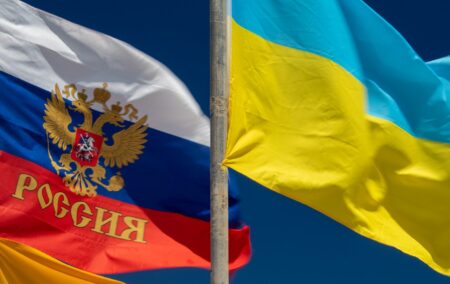Clayson Monyela, Head of Public Diplomacy at the Department of International Relations and Cooperation – one of the most senior civil servants in the foreign policy bureaucracy – has argued that South Africa’s position on the conflict between Russia and Ukraine is consistent with its long-standing foreign policy orientation, and that a solution must recognise Russia’s grievances.
Writing in the Daily Maverick, he said that South Africa’s position was not based on an alignment to any protagonist, but to its commitment to peace, security and justice. It was necessary to suspend ‘debates’ and focus on achieving peace.
However, he went on to argue that the root causes of the conflict were the actions of the Western powers:
‘Despite extensive commentary on this situation, very little is said about the causes of the conflict. Any diplomatic process must address the security concerns of all parties. Had NATO given Russia the security assurances they required and were promised since the dissolution of the Warsaw Pact, the region would not likely find itself in the situation it is currently in. Russia has been asking NATO for legally binding guarantees that NATO membership would be denied to Ukraine and Georgia, and that NATO’s eastern expansion would end.
‘Russia also wants assurances that no missiles will be deployed near its borders that could be used to strike its territory, and that NATO military drills not take place in the vicinity. Just as Russia will not tolerate NATO positioning missiles near its territory, the US would never tolerate Russia deploying missiles in its neighbourhood. This was the very issue that brought the world to the brink of nuclear war during the Cuban Missile Crisis in 1962 — when Russia constructed sites for nuclear missiles in Cuba, and the US threatened a nuclear response if the sites were not dismantled.’
Monyela’s article did not suggest any specific culpability on Russia’s part, nor offer any specific criticism of its actions.
He concluded by stating that South Africa was calling for a ‘peaceful resolution of this crisis’ and was committed to ‘responsive institutions of global governance.’ The country, he added, was ‘willing to work with all interested parties towards a ceasefire and lasting peace.’

